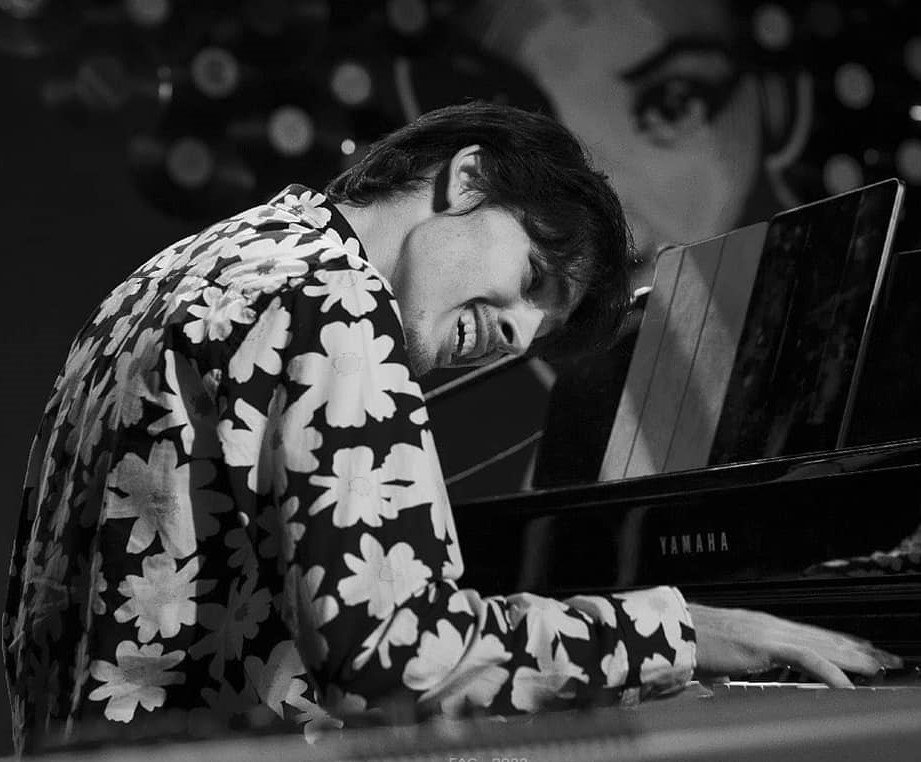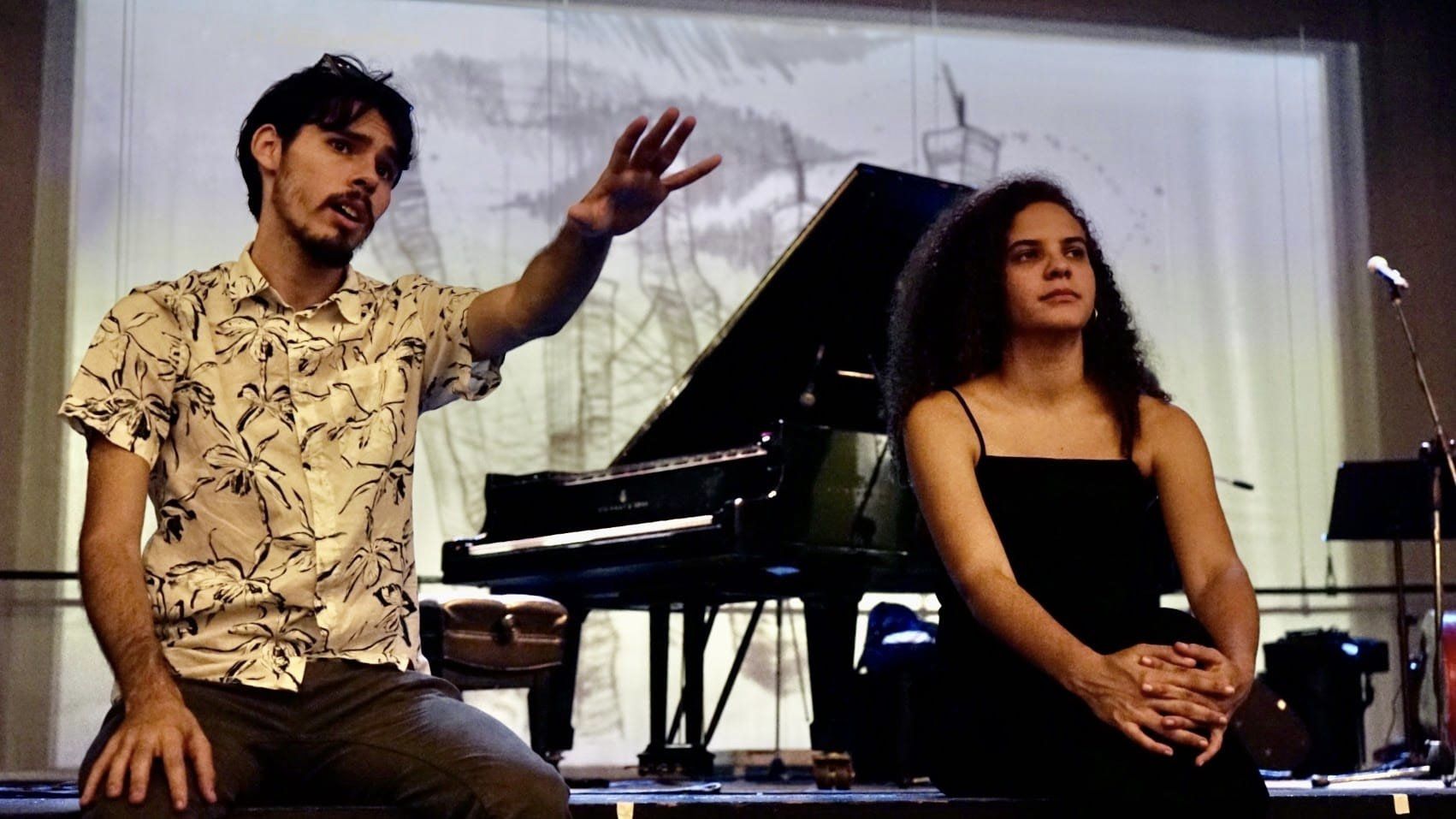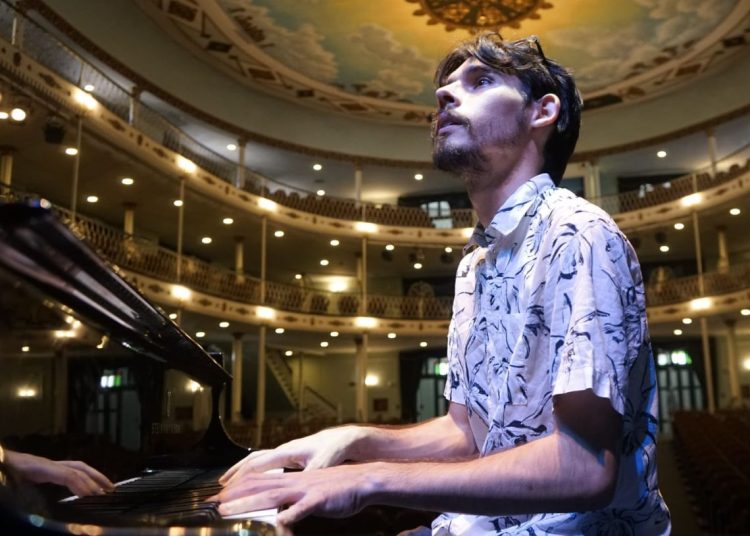Heir to a rich artistic tradition, refined musical taste and great virtuosity in playing the piano, Rodrigo García Ameneiro is seen as one of the young talents of contemporary Cuban piano music.
Despite his young age (he is only 18 years old), he is a composer, arranger and producer. In his childhood, he had to choose between his two passions: baseball and music. “Since I was little I played third base on the Plaza municipality team, where I participated in several competitions and tournaments when I was 6 and 7. Around that same time, I had the opportunity to take the music school tests; they told me that I had conditions and I decided that music would be the way, although I am still a fan of team sports.”

Son of the singer Rochy Ameneiro and the music producer Josué García, Rodrigo’s home environment helped him opt for the arts, with discipline and perseverance. “My parents did not put pressure on my decision to pursue art. I got carried away by the musical atmosphere of my house.”
At the Manuel Saumell Conservatory, together with his teacher Hortensia Upmann, he began to study music, then he went to the Amadeo Roldán Conservatory under the aegis of Aldo López-Gavilán and became a piano professional at the Higher Institute of Art (ISA) in 2022, with the help of his teacher Liana Fernández.
“I thank all the teachers who participated in my training, friends, and beloved musicians of whom I have fond memories. My teachers have inspired me on this arduous path and in this career of so much sacrifice.”

In collaboration with his mother, Rodrigo García is producing the musical production of the children’s album Cancioncita para ti. “I must thank her for how much I owe her. Working with her on her CD was a challenge; I was able to do the production and arrangements. I always take my work very seriously and try to do it at the highest level. I have been in charge of other record productions as an arranger and composer.”
With almost seven years on the Cuban music scene, the band Ceda el Paso continues to captivate the public and form new artists. “It has been a gift. It has given me a lot of joy and I have learned from everyone. We are a group of friends who have seen each other grow in art, each one from their creative horizons contributes to the development of the group and the repertoire.”

The laurels achieved in his short but prolific artistic work encourage him to continue striving. “Music contests are a means to learn and prepare to continue growing. They constitute a meter to know what level you are at and what you want to reach. It has been a pleasant experience to have been in different national and international competitions. Each one has their value; I have learned from all of them and they have helped me to continue growing.”
Another of his projects is the Dúo Espiral, created eight years ago with the violinist Tania Haase. “It is a project that has taught us a lot as a couple and musicians; we are happy to continue playing, learning and getting to know each other in another way.”
Rodrigo García is the youngest member of the United Nations UNETE Artists Network and the Ibero-American and African Network of Masculinities. “I have been involved in social actions for non-violence against women, in favor of equity, acceptance, and diversity. Artists and public figures have the responsibility to defend these causes,” he pointed out.
The convergence between the Generación albums, the Confluencia de Pianos and Espiral Dúo en vivo DVDs is the promotion of Cuban music. “We have been very involved with the interpretation and we make known Cuba’s music made by contemporary authors, in different styles. I have tried to break down the barriers between the different styles of concert and popular music. These CDs are a tribute to the legacy of Cuban artists, to the music of the island and the world. In them, I try to unite the languages of academic and popular music to try to converge in the same environment.”

“Recently, I have been lucky enough to make a DVD titled Confluencia de Pianos (Volumen II). In that volume, I share with eleven of the greatest pianists in Cuba, from different generations, styles and genres. It includes masters Frank Fernández, José María Vitier, Aldo López-Gavilán, Harold López-Nussa, Cucurucho Valdés, Rolando Luna, Alejandro Falcón, among others,” García commented on one of his latest works.

With a musical career on the rise, the young pianist does not stop learning, experimenting with music, and collaborating with his mother. “Right now I am recording my second solo piano album. It will be Latin American music and will feature compositions by Aldo López-Gavilán, Alberto Ginastera (Argentina), and Egberto Gismonti (Brazil). I continue playing with Rodrigo García and Ceda el Paso, Dúo Espiral, and with the Espirales project, a chamber music quintet.”










